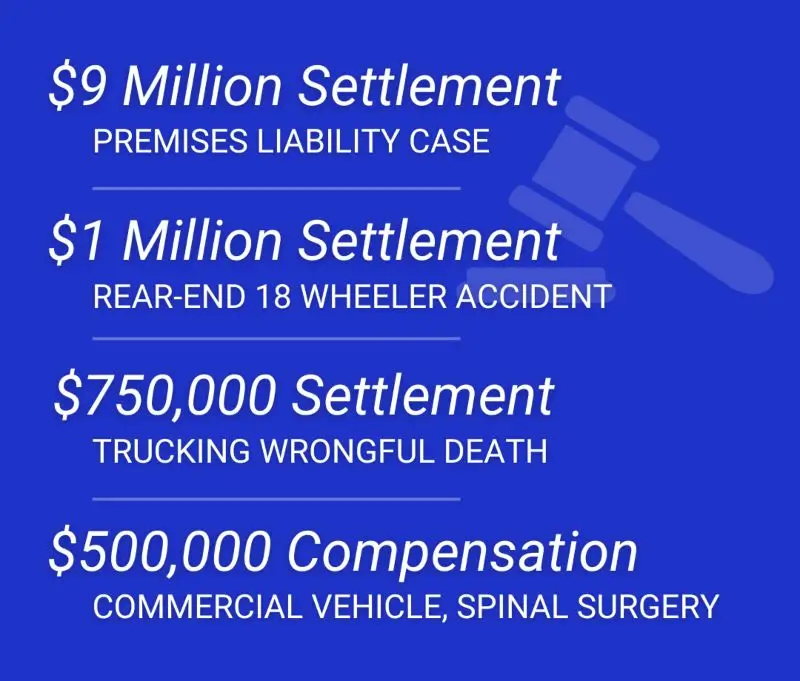Learning About Car Accident Fault in Houston, TX
Determining fault in a car accident is a critical step in resolving claims, insurance payouts, and potential legal actions. It’s not always as straightforward as it seems, so understanding how fault is assessed—and knowing your rights—can make all the difference, especially in a state like Texas. If you’ve experienced a car accident in Houston, TX, you probably wonder, “Who is at fault, and how is it decided?” This blog will guide you through every aspect of fault determination, from legal definitions to real-world scenarios. By the end, you’ll gain clarity on complex terms like comparative and contributory fault, understand typical accident scenarios, and learn how auto accident lawyers like Nava Law Group can help protect your rights.

What Does Being “At Fault” Mean?
When someone is “at fault” in a car accident, they are legally determined to be responsible for causing the accident. Fault leads to liability, which means the at-fault driver (or their insurance provider) must cover damages like medical bills, vehicle repairs, or lost wages incurred by other parties involved in the accident. Fault assessment varies by state. Texas, for instance, follows a “fault system,” meaning the driver deemed responsible must cover the damages. Insurance companies and legal teams often jump in to investigate accidents and determine fault, which can involve accident reports, witness statements, and sometimes even expert testimonies.
What Is Comparative and Contributory Fault?
Fault is rarely black and white. Often, multiple parties contribute to an accident, and this is where comparative and contributory fault laws come into play. Knowing the difference between these two will help you better understand their significance:
Contributory Fault
Some states adhere to contributory fault rules. Under this system, if you are proven to share any degree of fault in an accident, you may be barred from recovering compensation. Even 1% of fault can lead to the denial of claims.
Comparative Fault
Texas follows a modified comparative fault rule. Here, you can recover damages if your degree of fault is less than 51%. However, your compensation will be reduced by your percentage of fault. Being aware of this system is crucial if you’re in an accident, as opposing parties may try to inflate your level of fault to reduce their liability. For example:
- If you are deemed 20% at fault and your damages total $10,000, you will receive $8,000 after the deduction.
- However, if you are found to be 51% or more at fault, you cannot recover any damages.
Common Causes of Car Accidents in Texas
Car accidents occur for various reasons, and understanding these causes can help you take preventative measures to avoid them. Being aware of these factors can help you take steps to drive more defensively and avoid dangerous situations. If an accident occurs due to someone else’s negligence, contact Nava Law Group to discuss how you can seek compensation. Some of the most common causes of accidents in Texas include:
- Distracted Driving: From texting to adjusting the radio, distractions can lead to devastating collisions. Remember that even a moment of inattention can change lives forever.
- Speeding: Driving above the speed limit reduces your ability to react to sudden changes on the road, significantly increasing the chance of a serious or fatal accident.
- Driving Under the Influence: Impairment from alcohol or drugs diminishes coordination and decision-making, endangering everyone on the road.
- Weather Conditions: Rain, fog, or ice can make roads slippery and reduce visibility, requiring extra caution from drivers.
- Reckless or Aggressive Driving: Behaviors such as tailgating, unsafe lane changes, and ignoring traffic signals create hazardous conditions for all motorists.
How Is Fault in a Car Accident Determined?
Assigning fault typically relies on evidence and investigations led by police officers, insurance adjusters, and legal professionals. The process is centered around specific factors, such as:
- Police Reports: Officers at the scene document details of the accident, talk to witnesses, and may issue citations to one or more drivers.
- Traffic Laws: Violating traffic rules (e.g., running a red light, speeding) can help pinpoint the at-fault party.
- Witness Testimonies: Neutral accounts from bystanders provide valuable context.
- Dashcam or CCTV Footage: Video evidence often offers unmistakable clarity.
- Accident Reconstruction: Experts can analyze collision details to determine how the accident unfolded.
Learn the Steps of Establishing a Fault
Determining fault after a car accident requires a thorough evaluation of various factors. Investigators typically piece together evidence to understand the events leading to the collision. This process involves analyzing physical evidence and witness accounts to understand what happened clearly. Carefully reviewing the circumstances surrounding the accident is crucial for assigning responsibility. These inputs help determine which driver acted negligently, violating their ‘duty of care’—a legal obligation to act safely while driving.Additional steps to establish fault include the following:
- Gather evidence, including photos and contact details of witnesses.
- File a police report as soon as possible.
- Coordinate with insurance companies and provide accurate details about the accident.
- Consult a legal professional if disputes arise.
Why Hire an Attorney for Your Car Accident Case
When dealing with a car accident claim, the legal process can become complex and overwhelming, especially if you’re recovering from injuries. At Nava Law Group, we have extensive experience handling car accident cases in Houston and beyond. Contact us for a consultation, and learn how our dedicated attorneys can help you achieve the justice and compensation you deserve. Hiring an experienced attorney offers several essential benefits:
- Legal Expertise: Navigating Texas laws, especially comparative fault rules, requires specialized knowledge. Our team understands how to interpret and apply these laws to maximize your compensation.
- Negotiation with Insurance Companies: Insurance adjusters often try to minimize payouts. We fight on your behalf to ensure you’re treated fairly and receive the compensation you deserve.
- Comprehensive Case Management: From gathering evidence to filing paperwork and representing you in court, an attorney takes the burden off your shoulders so you can focus on healing.
- Higher Settlements: Studies consistently show that victims who work with lawyers tend to receive larger settlements than those who handle claims independently.
- Peace of Mind: Knowing someone is advocating for your best interests helps reduce stress during a challenging and emotional time.
Types of Compensation You May Be Entitled To
After a car accident, victims may be eligible for various forms of compensation. Our attorneys will carefully evaluate all aspects of your case to determine the full value of your claim. The specific damages you can recover depend on the details of your case, but they typically fall into the following categories:
- Economic Damages:
- Medical expenses, including hospital stays, surgeries, and physical therapy
- Lost wages and reduced earning capacity due to injuries
- Property damage to your vehicle or other personal items
- Non-Economic Damages:
- Pain and suffering
- Emotional distress
- Loss of enjoyment of life or companionship
- Punitive Damages:
- Awarded in cases involving gross negligence or malicious intent to punish the at-fault party and deter similar behavior in the future
Real-Life Scenarios of Determining Fault
Understanding common accident situations can help you recognize how fault is typically assigned. Whether it’s a rear-end collision, a multi-vehicle pile-up, or a fender bender in a parking lot, each scenario has its own set of factors influencing fault determination. Knowing how these situations are assessed not only aids in protecting your rights but also helps prepare for conversations with insurance companies, legal representatives, or other involved parties. This knowledge can be crucial for navigating accident claims and ensuring a fair resolution. Consider the following examples to understand differing situations better:
Scenario 1: Rear-End Accident
Who is at fault?
In rear-end collisions, the driver in the back is almost always at fault. Drivers are expected to maintain a safe following distance to prevent this type of accident. However, exceptions may arise, such as if the front driver suddenly brakes for no valid reason.
Scenario 2: Driver Ran a Red Light
Who is at fault?
Running a red light is a clear traffic violation. The driver who ignored the signal will often be held fully responsible. Eyewitness accounts, traffic cameras, or skid marks can substantiate the claim.
Scenario 3: Left Turn Without a Signal
Who is at fault?
The driver making the left turn is usually at fault unless they had the right of way or the oncoming driver was speeding or distracted. Fault analysis depends on the specifics of the accident.
Scenario 4: Parking Lot Accident
Parking lot accidents bring unique challenges due to the informal nature of the roads:
- Failure to Yield: Drivers failing to yield the right of way in marked lanes are often responsible.
- Backing Out Collisions: If two drivers back out simultaneously, the fault may be shared.
- Hit While Stationary: The moving driver is typically at fault.

The Role of Evidence in Your Claim
Strong evidence is the foundation of any successful car accident claim. To maximize your chances of receiving fair compensation, ensure the following evidence is gathered and organized with the help of a lawyer:
- Photographs and Videos: Visual evidence can depict damages, road conditions, and contributing factors that led to the crash.
- Witness Statements: Eyewitness testimony can corroborate your version of the events and provide an unbiased perspective.
- Police Report: This official document is significant when addressing liability and determining fault.
- Medical Records: Documentation of your injuries and treatments is critical for demonstrating the extent of your damages.
- Receipts and Bills: Keep track of all expenses, including medical services, vehicle repairs, and lost wages, so that you can calculate your total losses accurately.
Why Choose Nava Law Group?
When it comes to car accidents in Houston, TX, Nava Law Group stands out for delivering top-tier legal support and results. We ensure you’re in capable hands by providing expert guidance and compassionate representation. Our experienced attorneys deeply understand personal injury law and are committed to fighting for the best possible outcomes for our clients. Contact us today if you’re looking for trusted auto accident lawyers to protect your rights and secure fair compensation. Here’s why we’re the right choice:
- Extensive Experience: Decades of handling complex car accident cases.
- Local Expertise: A firm rooted in Houston, we understand Texas-specific laws.
- Personalized Attention: Every case is treated with care and dedication.
- Proven Results: We’ve recovered millions for our clients, ensuring justice is served.
Our Practice Areas
Nava Law Group specializes in a wide range of personal injury cases to ensure that no matter your situation, you have access to the legal representation you deserve. Our areas of expertise include car accidents, truck accidents, motorcycle crashes, workplace injuries, medical malpractice, wrongful death, and more. Each case we take is approached with a personalized strategy tailored to your unique circumstances. We understand the challenges you may be facing and are here to guide you through the legal process, fighting relentlessly to secure the compensation you need to move forward. No matter the complexity of your case, Nava Law Group is equipped to handle it with skill and dedication.
Understanding Fault Can Safeguard Your Compensation
Determining fault after a car accident can feel overwhelming, but knowing where you stand is essential. Comparative fault rules in Texas add complexity, making thorough evidence collection and legal guidance essential to protecting your case. Whether you’re faced with a disputed claim or need help navigating insurance negotiations, Nava Law Group is here to help every step of the way. Contact our team in Houston for a free consultation and ensure you receive the justice and compensation you deserve.








